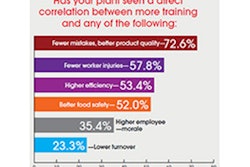MEXICO CITY (AP) — Mexico's congress approved a new tax on junk food Thursday as the government announced a campaign to fight obesity in a country with one of the world's highest rates of overweight people. The move came a little over a day after legislators agreed to put a tax on soft drinks.
President Enrique Pena Nieto announced a plan to award products that meet standards for having lower calories or higher fiber content a "seal of nutritional quality," which he said would give industry an incentive to re-formulate products. He also announced plans for educational, health-monitoring and sports programs.
Earlier in the day, Mexico's Senate approved an 8 percent tax on high-calorie foods, defined as those having more than 275 calories per 100 grams. The House of Deputies then approved the levy, which the Senate set higher than the originally proposed 5 percent.
As part of a tax overhaul that received final legislative approval Thursday, both houses already agreed to a one-peso (8-cent) per-liter tax on soft drinks, a move that was hotly opposed by major bottlers. Mexico has one of the world's highest yearly soda consumptions, with Mexicans drinking on average 163 liters (43 gallons) of soft drinks annually.
Just under one-third of adult Mexicans are obese, slightly more than the nearly 32 percent of U.S. citizens in that category, the U.N. Food and Agriculture Organization says. Both trail such countries as Egypt at 35 percent, Kuwait at 43 percent and the Micronesian island of Nauru at 71 percent.
"Never before has any civilization faced an epidemic that didn't involve an infectious disease," said Enrique Ruelas, president of Mexico's National Institute of Medicine. "Today, this situation is not only unprecedented, but a threat to the nation's future."
None of Mexico's major snack food companies responded to requests for comment about the proposed taxes.
Coca-Cola's Latin American Group president, Brian Smith, said the company was developing more low-calorie or no-calorie drinks, and said it was interested in keeping communities healthy.
"Our operations simply won't be sustainable if these communities aren't healthy," Smith said at the presentation of the government's announcement of the anti-obesity programs.
Consumer activist Alejandro Calvillo, leader of the Consumer Power group, noted the soft drink industry lobbied heavily in recent weeks trying to block the new taxes and called the tax vote an important step.
"It is a victory over all this lobbying," Calvillo said. "This puts Mexico in the vanguard of policy, at least on the Latin American level."





















